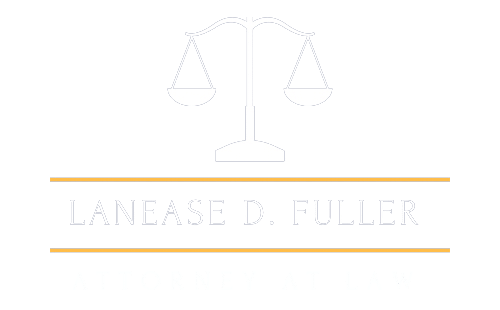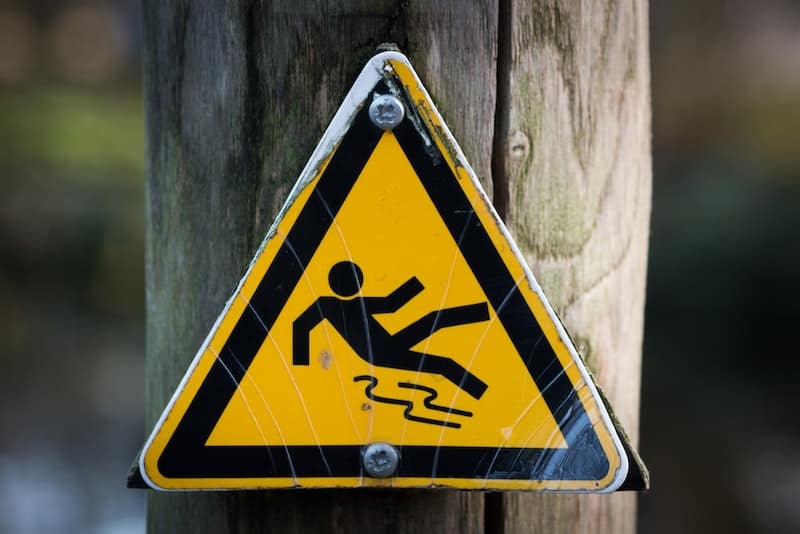Have you suffered an injury due to unsafe conditions on another person’s property? Did they have slick flooring due to a spill, unclean conditions, or another issue? Our team can help. We work with individuals who have suffered injuries from slipping and falling on commercial property. Contact us today to schedule a free consultation with a slip and fall attorney located in Houston.
What is Slip and Fall Law?
Slip and fall law refers to the liability rules governing cases in which an individual falls to the ground and suffers harm due to a dangerous condition on someone else’s property. As a subset of personal injury law, these cases are controlled by the basic rules of negligence. Unless an accident occurs on federal government property, state law will control. Violations of local building code ordinances can also be relevant.
Despite the reference to a “slip,” this area of the law covers any accident that results from the victim encountering an unsafe condition underfoot, whether it produces a stumble, overextension, twist, or other movement. Direct causes can include spilled liquids or food, cracked sidewalks, objects on the stairs, ice and snow, broken floor tiles, uneven steps, and potholes. Indirect causes, such as dim lighting or missing handrails, can also contribute.
At the outset of a slip and fall lawsuit, the responsible parties must be identified. While fault can usually be traced to an individual employee or tenant who caused the hazard, there will be additional parties who exercised control or ownership of the accident site. These may include the property manager, business owner, landlord, or the owner of the property. In most cases, one or more of these parties will have liability insurance covering the property.
If the identity of a responsible party cannot be immediately determined, or if there is uncertainty as to the precise name of one of the defendants, most jurisdictions allow the lawsuit to name a “John Doe” defendant. Once the responsible party has been identified, the court documents can be amended to substitute the correct name in place of John Doe. This allows a plaintiff who is still researching the case to file the claim on time.
Special considerations arise when a slip and fall accident takes place on public property. Foremost is the issue of sovereign immunity. Historically, individuals were completely barred from suing the government for negligence. In modern times this rule has been amended by statute, and the government now allows itself to be sued in limited circumstances. If an injury does qualify, victims must also comply with strict notice requirements and time limits.
Proving the Defendant is Liable
Unless it is a rare case involving intentional conduct by the defendant, a slip and fall case will require the plaintiff to prove negligence. Negligence means that the defendant failed to act in a reasonable manner under the circumstances. For example, it is reasonable to expect a store clerk will place warning signs in recently mopped areas. If this is not done, and a customer slips on the wet floor and gets hurt, the store may be liable for negligence.
Whether someone acted negligently will depend on what they knew. This is especially true in slip and fall cases, as the defendant’s knowledge of the dangerous condition will usually be determinative. The plaintiff is entitled to find out what the defendant knew through a procedure called discovery. During discovery, the defendant can be forced to turn over maintenance records, repair logs, surveillance video, and other such items.
A slip and fall victim is also permitted to gather sworn testimony regarding what happened. The plaintiff does not need to wait until trial to learn what the witnesses will say. This is accomplished by conducting depositions (recorded interviews). Subpoenas can be issued to the defendant and other parties to show up to be deposed at the office of the plaintiff’s attorney, and to answer questions about the accident on the record.
Deposition testimony is crucial in a negligence case. By securing this evidence early in the litigation, both the plaintiff and the defendant gain an understanding of the circumstances that led to the accident and the degree of fault that can be attributed the defendant. Taking into account the severity of the injury, both sides can then determine what they believe the case is worth, and settlement negotiations will ensue.
Cases that initially appear favorable to the plaintiff are often derailed once the plaintiff’s own conduct is analyzed. Defendants in slip and fall cases are sure to raise the issue of comparative fault. Also called contributory negligence, the basic idea is that the victim was careless in not avoiding the danger, and shares some or all of the blame. To avoid such a defense, slip and fall victims should retain an attorney before speaking with anyone about the incident.
Contact our law firm today to set up a free consultation with a slip and fall attorney located in Houston. Our team will work with you to determine if you have a case we can help you get compensation for.
Experienced Personal Injury Attorney in Houston
Attorney Fuller is a seasoned attorney with nearly three decades of experience representing a wide range of clients. This includes individuals who have suffered an injury due to another’s actions, individuals facing criminal charges, those who have been arrested for DWI, individuals who have found themselves in a civil litigation dispute, and those looking for legal guidance in business.
After filling out a client intake form, Attorney Lanease D. Fuller will take appropriate action in your case to help you get the results you are looking for. This includes but not limited to gathering evidence, going to trial, and earning a settlement that is appropriate for your specific situation. Reach out to us today to take the first step towards settling your case.
LANEASE D. FULLER LAW
4615 S. Frwy St. 820
Houston, TX 77051
713-439-7400
View our Google Listing


